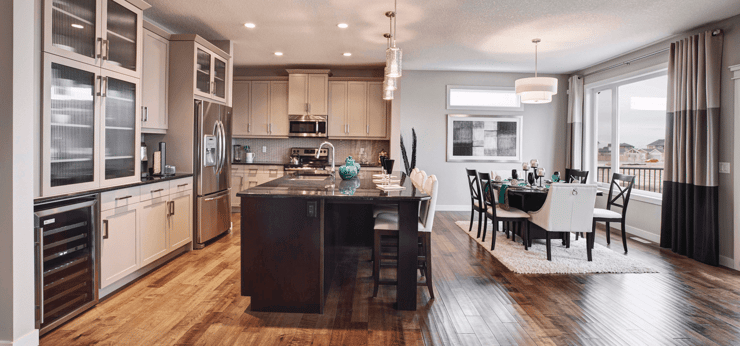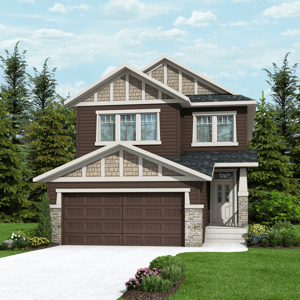 When you purchase a resale home, you have a clear idea of what you’re getting for the asking price. The prices of new homes, on the other hand, are less defined. Even from the same builder, the price of each home varies based on a number of factors. So, if you’re considering a new home, here are a few factors that affect their starting prices.
When you purchase a resale home, you have a clear idea of what you’re getting for the asking price. The prices of new homes, on the other hand, are less defined. Even from the same builder, the price of each home varies based on a number of factors. So, if you’re considering a new home, here are a few factors that affect their starting prices.
Townhomes vs. Single Family Homes
If you want more privacy, you have to pay for it. In a duplex or townhome for instance, you’re sharing walls with your neighbours. Your backyard may be smaller and will also be closer to your neighbour’s home. Detached houses offer more privacy and are often larger homes with bigger yards - for this reason, they will usually come with a bigger price tag.
Standard Models vs. Upgraded Features
Each new build home comes with a variety of standard features. At NuVista, some of these features include 9’ ceilings on the main room, triple pane windows, high-efficiency furnaces, stainless steel appliances, granite countertops, and a rainfall shower head in the ensuite bathroom.
Choosing only standard features will get you the lowest price, but when you start to upgrade some of the features or make other customizations to the plan, you will start adding to the cost. For instance, if you want the rainfall shower heads in all of the bathrooms, you’ll pay a small amount more. However, if you want to make large changes, like adding a patio or making a closet bigger, the costs will be greater.

Smaller vs. Larger Homes
In general, the bigger the home, the bigger the price tag. Naturally, when a home is bigger, the builder needs more materials and needs to spend more time on the home’s construction. However, it’s important to note that kitchens and bathrooms are typically the most expensive rooms in a home. That means that doubling the square footage doesn’t necessarily mean doubling the costs. When the extra space consists of adding bigger bedrooms or finishing the basement and attic, it might add a small amount to the overall cost, whereas a larger kitchen or bathroom could add more.
Urban vs. Suburban Homes
Your home price also fluctuates based on where you want to build your home. In the city, land is more expensive, so the total price of your home tends to be greater, even though the home might be smaller. For instance, a 1,700 square foot detached home located in our Cooper’s Crossing community might cost around half of the amount of a 1,700 square foot duplex home located in our Calgary Inner City Homes community, depending on different features and amenities. If you want more space and a lower price, you’ll need to move more towards the outskirts of the city.
Minimum Down vs. 20% Down
The amount of your down payment plays a large role in how much you’ll pay from month-to-month. For instance, if you made the minimum 5% down payment on a $500,000 home and got a 25-year loan at 4% interest, your monthly payment would be around $2,500. However, if you paid 20% down, the monthly payment would be just $2,100. Paying a bigger down payment makes things more affordable. Use our mortgage calculator to see how different scenarios could play out for you.
The only way you’ll truly know how much you can expect to pay on your new home is to start making a list of what features you really need. Talk to a sales representative about how certain decisions could affect the overall price of your home to make a better decision. Regardless of which type of home you are looking for, they are sure to help you find the home of your dreams at a price you can afford.





